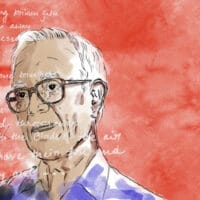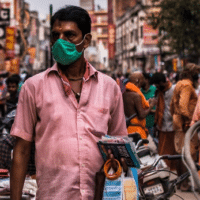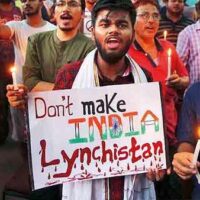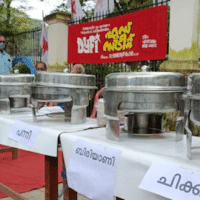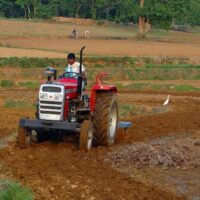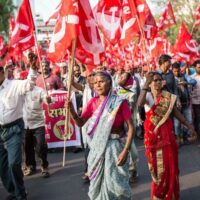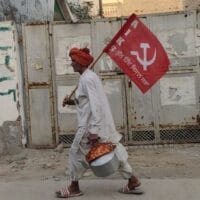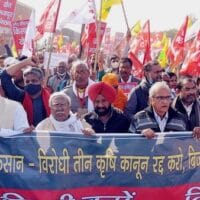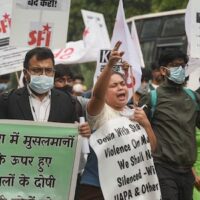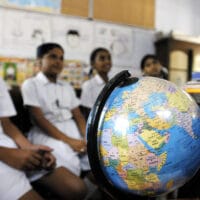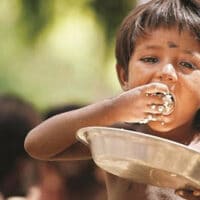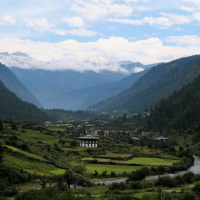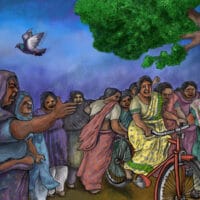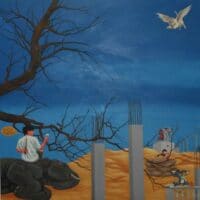-
Financial Markets under capitalism
One of the most important arguments advanced by John Maynard Keynes, the renowned economist, was that the operation of financial markets under capitalism is deeply flawed.
-
Ill-treatment of Stan Swamy in jail should ‘shake foundation of democracy’: Fellow prisoner
Iklakh Rahim Shaikh, who spent time with the Jesuit priest in Taloja jail, says while “VIP prisoners” get access to all kinds of facilities, prisoners like Swamy are denied even the most basic rights.
-
U.S. inflation and India’s economic recovery
The very day, December 11, when the Indian finance ministry spuriously claimed a robust recovery in the post-pandemic Indian economy, newspapers carried news of an acceleration in the U.S. inflation rate.
-
India’s post-pandemic economic recovery
The pandemic alas is not yet over, but there are no economic disruptions in the current fiscal year in the form of lockdowns or workers’ absence. The economy’s performance therefore can no longer be attributed to the prevalence of the pandemic; whatever it is, it is caused by economic factors.
-
Biden’s Summit for Democracy: International NGOs express concern that Summit will ignore India’s descent to fascism
Groups extend offer to Biden to provide input to help make the summit a success.
-
‘People’s Lawyer’ Sudha Bharadwaj released after three years in jail
The activist-lawyer was granted default bail on December 1 following more than three years of her incarceration without trial in the Bhima Koregaon case in which a number of other activists were also implicated.
-
In Kerala, a street food festival takes on communal forces
The DYFI took on the Sangh Parivar’s attempts to polarise people with misinformation on halal by serving beef, pork, chicken and mutton in most towns of the state.
-
Debunking the “Eco-Fortress Nationalism” of the AOC/Markey Green New Deal
Max Ajl’s ‘People’s Green New Deal’ is a brutal reminder for the American left that even the most celebrated and progressive developments in American politics are still simply American politics, in other words they are a politics for America, and America first.
-
The peasantry’s victory over imperialism
One should scarcely be surprised therefore by the fact that the western media have been so critical of the Modi government for its climbdown.
-
This victory gives confidence for future struggles: The Forty-Seventh Newsletter (2021)
On 19 November 2021, a week before the first anniversary of the farmers’ revolt, India’s Prime Minister Narendra Modi surrendered.
-
After a year of struggle by farmers, Indian government forced to withdraw farm laws
Movements across India celebrated the struggle by the farmers during which they faced great repression and vilification. Around 750 people are believed to have died during the agitation which saw thousands camp on the borders of Delhi
-
Not just a love story?
Sekhar Kammula’s new film deftly highlights the contradictions of living in neo-liberal India.
-
Tripura Police books 102 people under UAPA for social media posts against communal violence
Opposition leaders have lashed out at the police’s ‘highhanded’ behaviour.
-
The homogenisation of education
Education in post-independence India was supposed not just to provide knowledge and skills to students, but also to facilitate the process of “nation-building” (to use a clumsy word).
-
Foodstocks, bio-fuels and hunger
THE Modi government’s attempt to “explain” away India’s slipping from being 94th on the world hunger index in 2020 to 101st in 2021, a rank well below that of neighbours Pakistan, Nepal or Bangladesh, by questioning the “methodology” of the index, is jejune enough; but even more shocking is its total inability to see the reason behind the acute hunger in the country.
-
Indian activist Gautam Navlakha shifted to high-security barrack
The health of the 70-year-old activist has deteriorated following the move. Prison authorities are now denying the family and his lawyer phone calls with him on the pretext that inmates can now be met in jail physically.
-
Narrative traps in India’s decision-making
Any Indian would know that powerful narratives envelop India’s deeply troubled relationships with Pakistan and China. The dominant narratives have become the means through which successive governments strove to assert values and identities.
-
The Opposition “Emocracy” Exposed: Kerala’s Landmark Left Victory
The landslide victory of the Left Democratic Front (LDF) in the Indian state of Kerala in April 2021 is a historic achievement.
-
Dossier No. 45: Indian women on an arduous road to equality
The current situation might present an opportunity to strengthen mass movements and to steer the focus towards the rights and livelihoods of women and workers. The ongoing Indian farmers’ movement, which started before the pandemic and continues to stay strong, offers the opportunity to steer the national discourse towards such an agenda.
-
The sound of his approaching step wakes me and I see my land’s deprivation: The Thirty-Seventh Newsletter (2021)
On Wednesday, 8 September, party workers of the Bharatiya Janata Party (BJP), India’s ruling political party, attacked three buildings in the Melarmath area of Agartala (Tripura). These attacks targeted the offices of the Communist Party of India (Marxist), the communist newspaper Daily Deshar Katha, and two private media houses Pratibadi Kalam and PN-24.


